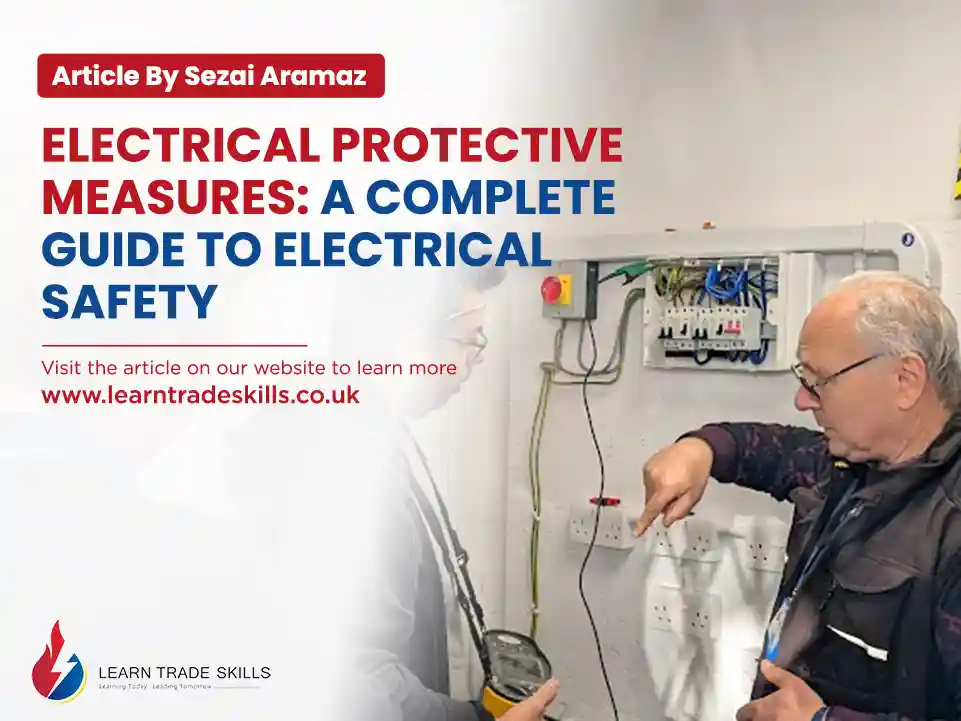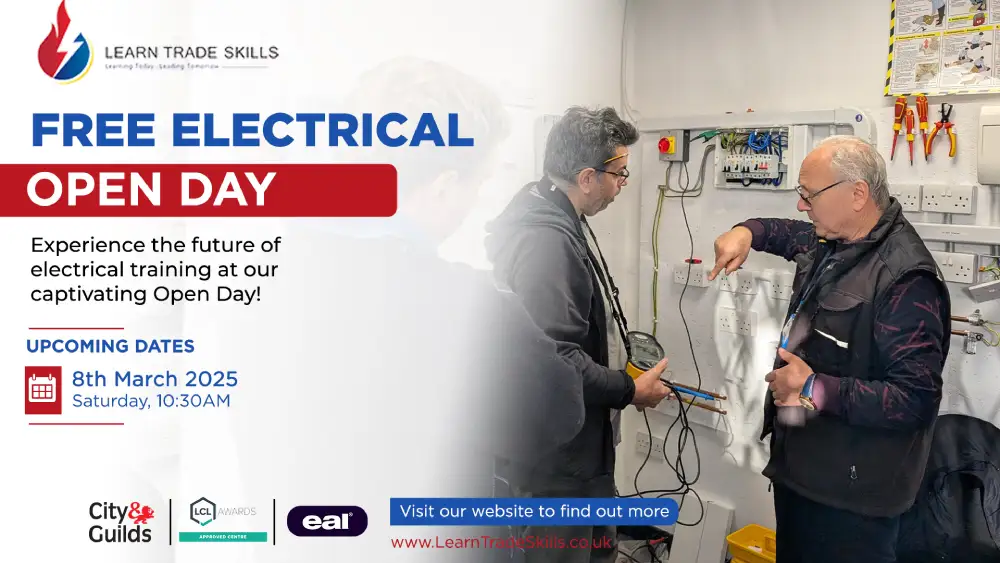

The UK’s ambitious commitment to achieving net-zero carbon emissions by 2050 has significantly increased the demand for skilled electricians. As the nation accelerates its efforts toward sustainable energy solutions, there’s a pressing need for professionals who can install, maintain, and innovate electrical systems. If you’re considering a career as an electrician, now is the perfect time to start. This article outlines the best courses to become a fully qualified electrician in the UK, providing insights into market conditions, government policies, and the growing opportunities in the industry.
The transition to renewable energy sources and the push for energy-efficient technologies have created a surge in electrical projects across the country. According to the Office for National Statistics, the electrical industry is expected to grow by 8% over the next five years, requiring an additional 15,000 electricians to meet the infrastructure demands. The government’s focus on initiatives like the Green Industrial Revolution and the expansion of electric vehicle (EV) charging stations underscores the critical role electricians play in this transformation.
The UK government’s net-zero target has led to substantial investments in renewable energy and sustainable infrastructure. Policies such as the Renewable Heat Incentive and the Electric Vehicle Homecharge Scheme have increased the need for qualified electricians trained in modern, eco-friendly technologies. These initiatives aim to reduce carbon emissions by promoting the use of electric heating systems and EVs, all of which require expert electrical installation and maintenance.
Embarking on a career as an electrician involves a structured educational pathway. Below are the key courses and qualifications you need to become fully qualified:
The Level 2 Electrical Installations Diploma is your foundational course, introducing you to the basics of electrical work. You’ll learn about electrical science, installation technology, and the fundamental principles that underpin the industry. This course covers:
Building on the Level 2 diploma, the Level 3 Electrical Installations Diploma delves deeper into complex concepts and advanced skills. Key areas of study include:
The NVQ Level 3 is a crucial step that focuses on practical, on-site experience. You’ll compile a portfolio demonstrating your competence in real-world scenarios. This qualification involves:
To enhance your qualifications and comply with industry standards, consider obtaining the following certifications:
The 18th Edition certification ensures you’re up-to-date with the latest wiring regulations, which is mandatory for practicing electricians in the UK. It covers:
The Part P certification allows electricians to self-certify that their work complies with building regulations. It’s essential for those working in domestic properties and includes:
This course provides in-depth training to enhance your competence in inspection and testing. Critical for ensuring safety and compliance with industry regulations.
Market trends indicate a robust future for electricians in the UK. The construction of new housing developments, and commercial buildings, and the retrofitting of existing structures for energy efficiency contribute to sustained demand. Additionally, the growth of smart technologies and the Internet of Things (IoT) opens new avenues for electricians specializing in advanced systems.
By pursuing these courses and certifications, you’re not just building a career—you’re contributing to the UK’s sustainable future. Electricians are at the forefront of implementing technologies that reduce carbon footprints and promote environmental stewardship.
The path to becoming a fully qualified electrician in the UK is structured yet rewarding. With the government’s net-zero policies driving demand and a clear educational pathway, you can secure a promising career in a growing industry. Training providers like Learn Trade Skills offer comprehensive support, ensuring you gain both the theoretical knowledge and practical experience needed for success.
If you’re ready to embark on this journey, search online for more information on each course and how it can benefit your career. The electrical industry’s future is bright, and your skills will be instrumental in powering the nation’s sustainable ambitions.
Tolga Aramaz is the Director of Learn Trade Skills (LTS), a family-run training centre specialising in electrical installations. With years of experience and a deep understanding of the electrical industry, Tolga is known for their exceptional organisational skills, attention to detail, and commitment to delivering outstanding results. They provide valuable insights and guidance to electricians, contractors, and businesses, ensuring compliance with industry regulations and safety protocols. Through engaging training programmes and consultancy services, Tolga empowers professionals to excel in their roles, fostering long-term relationships built on professionalism and customer satisfaction.



© Copyright Learn Trade Skills 2025
“Lorem ipsum dolor sit amet, consectetur adipiscing elit. Ut pretium tristique purus nec consectetur. Nulla feugiat eget tellus aliquam scelerisque. Sed eget luctus enim, sed mattis enim. Lorem ipsum dolor sit amet, consectetur adipiscing elit. Ut pretium tristique purus nec consectetur. Nulla feugiat eget tellus aliquam scelerisque. Sed eget luctus enim, sed mattis enim.Nulla feugiat eget tellus aliquam scelerisque. Sed eget luctus enim, sed mattis enim. Lorem ipsum dolor sit amet, consectetur adipiscing elit. Ut pretium tristique purus nec consectetur. Nulla feugiat eget tellus aliquam scelerisque. Sed eget luctus enim, sed mattis enim.”
William Goss
Electrician course
11/11/2024